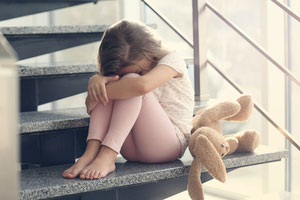Making the decision to divorce can be tough, especially if children are involved. After all, a divorce will affect them, as well—maybe even more than you. They will have to split their time between two households. They will likely feel angry and confused. Should they still love their mother or father even though mom and dad no longer love each other?
Divorce affects each child differently, depending on their age and personality. Young children have little concept of divorce, while older ones may rebel. Some may even be accepting of divorce, especially if they wished it would have happened years ago.
If children are involved, parents tend to feel conflicted. Should they divorce now, or is it better to wait until the children are adults? For parents, there is also fear of the unknown, especially if their parents never divorced. How will the kids react? Will they act out? Will their grades slip?
It is a slippery slope. Parents certainly do not want to discourage their children from ever having relationships. Will a divorce do that?
The good news is that children are quite resilient. They tend to be flexible and able to bounce back after a divorce. There will certainly be situations in which they may feel upset, sad, or anxious, but overall, they tend to fare well. Here are some ways in which a divorce will affect your kids.
It is an Emotional Time for the First Year or Two
The first couple years after a divorce are the hardest. Children’s routines are disrupted as they must now travel between two homes. They may feel as though they are the ones to blame. Older teens will blame one parent or both. Young children do not understand the concept of divorce, so it is a confusing time for all involved.
Children Feel Less Close to Their Fathers
Because the mother tends to get primary custody of the children, the kids see less and less of their father. The bond they once had with their father will be affected. The relationship becomes strained, with many children losing contact with their fathers once they reach adulthood.
Parents are More Stressed
Single mothers are stressed out. There is so much pressure to work and care for the family. At the end of the day, they may become less supportive and affectionate than married mothers. They may also become less effective at disciplining their children.
Some do Better at Home, But do Poorly in School
Some kids feel like they need to step into a father or mother role with one parent absent, so they may be more willing to help out at home. They may do chores and help when a sibling has a problem. These same children, however, may act up at school. Grades may start to slip. They may rebel and turn to bullying. They may disrespect authority and get into trouble more often.
Divorce can Affect a Child’s Behavior
Divorce can cause children to become more impulsive and engage in risky behavior. They may turn to substance abuse and sexual activity. They may also develop mental health problems such as anxiety and depression. In some cases, these issues continue on well into adulthood.
They Will Feel Financial Strain
Going from one home to splitting up into two homes certainly costs more money. This often leads to financial strain, a common side effect of divorce. Downsizing is not uncommon, with families going from a four-bedroom home with a backyard in a nice neighborhood to a small two-bedroom apartment in a less desirable part of town. It is not uncommon for spouses to have to pick up an extra job or two to make ends meet.
They do Not Like Badmouthing
Many parents will get the children to side with one parent over the other. They do this by badmouthing the other parent. Children hate this. They do not want to feel forced to choose sides. Regardless of the divorce, they want to love both parents, but it is hard when one or both parents talk badly about the other.
Children Must Deal With More Changes as Parents Remarry
Adults tend to remarry within five years after a divorce. This leads to even more changes for children as they must now deal with a stepparent and possibly even stepbrothers and stepsisters. This leads to a whole new family dynamic. Given that second marriages do not tend to last as long as first marriages, it is not uncommon for a child to have to face multiple divorces by the time they reach adulthood.
A Divorce can be a Sense of Relief
Not all children want their parents to stay together. When a parent abuses them or when both parents do nothing but argue, living in such a household can feel tense. That is why, in some cases, children are actually happy when Mom or Dad moves out of the house.
Divorce Will Affect Them as Adults
Even if the divorce happens when the children are moved out, in college or married with families of their own, it will still affect them. It may sadden them to know that the two parents they grew up with have gone their separate ways.
Seek Legal Help
Many couples are worried about going through a divorce, especially if children are involved. While it can be stressful for many kids, the way the parents act toward each other can make all the difference.
Divorces are complicated with or without kids. Get help from Palm Beach divorce attorney Scott J. Stadler. He offers mediation and other options so you and your spouse can divorce amicably without harmful effects on the children. Call his office at (954) 346-6464 to get started.

